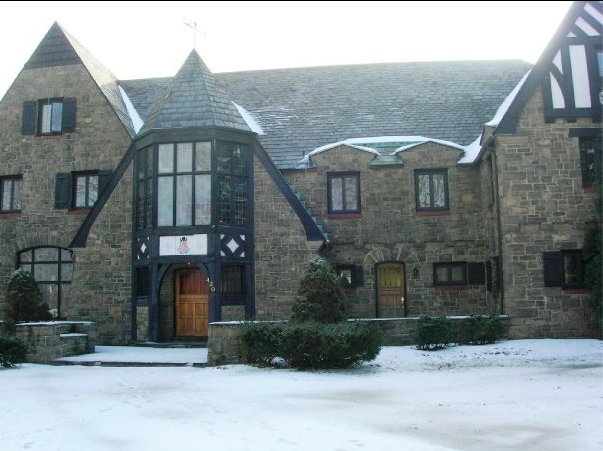
August 17, 2015
Pennsylvania joined a nationwide push last year to punish perpetrators who spread nonconsensual pornography, becoming one of several states to enact a "revenge porn" law.
The law has been on the books for less than 12 months, but state lawmakers are considering broadening its scope to cover unaffected perpetrators.
Currently, prosecution is limited to former intimate partners who disseminate sexually explicit images in an attempt to harass. Yet, critics say those restrictions leave too many "revenge porn" victims unprotected.
“I know that if we don’t get the language right, it’s not going to be helpful,” said state Sen. Judith Schwank, a Reading Democrat who has spearheaded "revenge porn" legislative efforts. “We’ve got to get it right.”
An official statewide tally totaling the number of people charged under the new statute — unlawful dissemination of an intimate image — is not readily available. But a Pittsburgh Post-Gazette report found that at least 11 people had been charged as of May 30.
Delaware County leads Southeastern Pennsylvania in charging five individuals under the law, according to numbers provided by county officials.
Bucks County has used the "revenge porn" law twice. Philadelphia, a city of 1.5 million people, has charged one person — a juvenile. It is unclear whether Montgomery and Chester counties have used the law at all.
Yet, these statistics are not the impetus for broadening the law. Schwank said it could take some time for law enforcement and prosecutors to recognize the statute is available. Statistics also might be mitigated by victims who are unaware of the law or afraid to come forward.
While a media campaign to raise awareness of the revenge porn law is not currently being considered, local law enforcement officials say they want victims to identify their online attackers and will do what they can to ensure their safety.
Convincing victims to file charges is "always a challenge, whether it be revenge porn, whether it be sex trafficking or whether it be drugs,” said Cameron Kline, spokesman for the Philadelphia District Attorney’s Office. “We continue to do the best we can. If we have to make extra protections, we do that.”
Critics questioned the strength of Pennsylvania’s law soon after its passage. They claim language limiting prosecution to intimate partners and requiring an intent to harass leaves too many victims unprotected.
“You’re going to have lots of cases where the people involved don’t actually know each other,” said Mary Anne Franks, a University of Miami School of Law professor who has helped various state legislatures, including Pennsylvania, draft "revenge porn" laws. “They are not current or former sexual partners.”
Criticism intensified last spring when a Penn State University fraternity allegedly ran an internal Facebook page showing images of nude or partly nude women who appeared to be sleeping or unconscious.
Prosecuting the students could be difficult — or impossible — because they kept the Facebook page secret and might not have been sexual partners with the victimized women.
Schwank plans to introduce a bill that would remove the necessity of a relationship between the victim and perpetrator. Such an amendment could enable prosecutors to bring "revenge porn" charges against hackers who steal intimate photos and post them online. It also could cover situations similar to the Penn State fraternity case.
Schwank, who announced her intention to expand the law in March, said her office is reviewing draft language with domestic violence organizations and the Pennsylvania District Attorneys Association. She expects the bill to receive broad support.
“I don’t think there would be a reason why they wouldn’t support it,” Schwank said. “I think it’s been long enough now to consider the changes that are necessary."
State Sen. Vincent Hughes, a Philadelphia Democrat, has joined Schwank in calling for an expanded law. He was involved in the state budget negotiations last week and unavailable for comment.
The amended law would maintain the maximum penalties for convicted "revenge porn" perpetrators — a $5,000 fine and a one-year prison sentence. If the victim is a minor, the maximum penalties increase to a five-year prison sentence and a $10,000 fine.
Franks recommended a media or marketing campaign to increase awareness of Pennsylvania’s state law.
“It’s also a really important public message to get out to potential perpetrators,” Franks said. “One of the really important aspects of the criminal law, at least ideally, is that you deter people from engaging in inappropriate behavior from the beginning.”
Law enforcement officers also need to be aware of the law and, in some cases, show more empathy to victims, said Annemarie Chiarini, victim services director for the Cyber Civil Rights Initiative.
Chiarini, a Maryland resident, was victimized by "revenge porn" in 2010 and 2011. A former boyfriend posted nude photos of her online, listing her full name, hometown, university workplace and a solicitation for sex.
Chiarini contacted law enforcement after each case. At the time, Maryland did not have a statute against ‘revenge porn’ — a term that had yet to gain widespread use. Police officers in New Jersey, where her ex-boyfriend lived, were unaware of state privacy statutes that could have been used to bring charges.
Chiarini, who later attempted suicide, said she felt law enforcement could not help her, but also blamed her.
“That’s where we see the effects on victims most harshly,” Chiarini said. “It’s in the victim blaming. It starts internally. I completely blamed myself. I felt I had done something wrong. It has taken me many years to move past that.
“It’s a very isolating crime because of the social stigma,” Chiarini said. “Victims are really shut out of their own lives.”
Yet, a national movement has grown during the last two years to prosecute perpetrators of nonconsensual pornography and shut down "revenge porn" websites.
Earlier this summer, Google announced it will honor requests to remove nonconsensual pornographic images from its search results. Microsoft is doing the same with Bing.
“It’s sort of the open wound that won’t heal,” said Kristen Hauser, vice presidents of public relations for the Pennsylvania Coalition Against Rape. “You never know — where is that photo of me? Who’s looking at it? Who’s using my own victimization for their own purposes?”
Congress is expected to consider a bill that would make "revenge porn" a federal crime when it returns to Capitol Hill this fall. But because federal law only can address areas of interstate commerce, Franks said strong state laws are imperative.
Twenty-five states have passed "revenge porn" laws; nearly all of them have done so in the last two years. New Jersey was the first, prosecuting "revenge porn" perpetrators by using a 2004 invasion of privacy law originally aimed at video voyeurs.
Pennsylvania finds itself amidst this surge, with the Penn State case underscoring the vast scope of "revenge porn" and the need for laws offering wide protection.
“It’s not an anomaly, unfortunately,” Schwank said. “All of us see that this does occur.”

